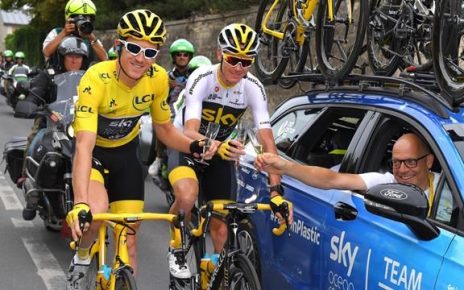
In the course of his research, anthropologist Luis Vivanco noticed a trend: many of the things he was studying were fun, playful, and even kind of silly.
As a professor at UVM, Vivanco had spent years teaching and studying the anthropology of environmental movements. Specifically, he was interested in bicycling.
But when he was reading old newspaper articles about maladies that overcame Vermont’s early cyclists — things like “bicycle face,” a kind of facial contortion that afflicted bike riders or “cyclist’s neuralgia,” a condition that included symptoms like a shriveling penis for men and “spinsterhood” for women — he just didn’t think that a typical academic paper was doing his finds justice.
So he decided to present his research in a new way: cartoons.
A few years ago, the Humanities Center at UVM, which Vivanco runs, was sponsoring a big symposium on comics in academia. As he was sitting in on one of the lectures, he began to realize that this is what the next phase of his research should be.
As soon as the lecture ended, he went up to the presenting professor and asked, “How can I do this myself?”
The professor had one piece of advice: “Go get yourself an illustrator.”
That was a problem for Vivanco. He had no money to hire that kind of professional. At that point, he realized he only had one option. He started drawing himself.
“I decided I would give it a shot,” he said. “I try to be kind of an idiot savant — I look at art and books and comics and then I do my best to reproduce what I see.”
VTDigger is underwritten by:
That strategy has led him to produce comics about bicyclists both throughout history and as they exist in the present, and around the world and in Vermont. Vivanco draws everything from one panel cartoons to short books of comics, depending on the complexity of the research that he’s trying to convey.
One of Vivanco’s latest works details the coverage by Vermont newspapers of an 1890’s phenomenon called “scorching,” which Vivanco describes as being a “great moral panic” around fast-riding recklessness by young men on bicycles.
The new medium, he said, has encouraged him to think about his research in a more three-dimensional way: he thinks about the things he’s reading more visually, and presenting it in a more nuanced way.
But it’s also made him realize another limitation of traditional academic work. Where his research papers were being read by a handful of academics in his field, comics have broader reach. He now can give out the comics he makes to his classes or at lectures across the state.

“There’s a real discourse of sobriety in academia,” Vivanco said. “This is a fun opportunity to dig beyond that in some ways.”
Vermont, Vivanco said, has been a good subject for his work for a number of reasons. The state was in the heart of the bike craze that took off in America in the 1880s. And since bikes were still pretty expensive at that time, they tended to be owned by the rich and powerful. Because of this, organizations of cyclists, or “wheelmen” as they were called then, were huge power centers in the state. The second wheelman’s club in the country was in Brattleboro, which Vivanco said became a hotspot for those with political aspirations.
The wheelmen were very concerned about the quality of roads, and as a result, according to Vivanco, Vermont’s early bike craze fueled the adoption of legislation to build up transportation infrastructure across the state.
The uniqueness of Vermont’s bike culture carries on into the present. Today, he said the state has a “surprisingly high” rate of bike use for a place as cold and hilly as Vermont.
“Burlington in particular has started to take bikes more seriously as a form of transportation and an environmental measure,” Vivanco said.
The rest of Vermont, though, has been a “tough nut to crack,” Vivanco said, largely because it is so rural.
“The question is often around how easy and safe is it to get places,” he said. “Is there a big shoulder? Are there bikes lanes? Things like that. Where we are with cycling and where we want to be can often be quite divorced.”

And these are the ideas that he wants to tackle in his comics. Vivanco thinks that through cartoons, his research can push the boundaries of how people typically see anthropological work.
“It’s playful,” he said. “But it’s taking play very seriously at the same time. It’s not meant to be dismissed as kids’ stuff — it’s very serious at its core.”
Vivanco continues to produce research in more typical academic formats, along with his work in comics.
VTDigger is underwritten by:
“Academic culture is inherently pretty conservative,” he said. “The prestige that comes with peer review, for example, shows that work is high quality. A lot of academics would not be prepared to be able to give really productive feedback when you’ve got someone like me doing academic work in a graphic form.”
Since he’s already a tenured professor, and can’t be promoted any higher in the ranks of anthropology, Vivanco said he feels like he’s expected to take some risks. And comics is the risk that he wants to take.
“Part of me feels like I have this privilege and this obligation to push my field,” Vivanco said. “This is one way I’m trying to do that.”








